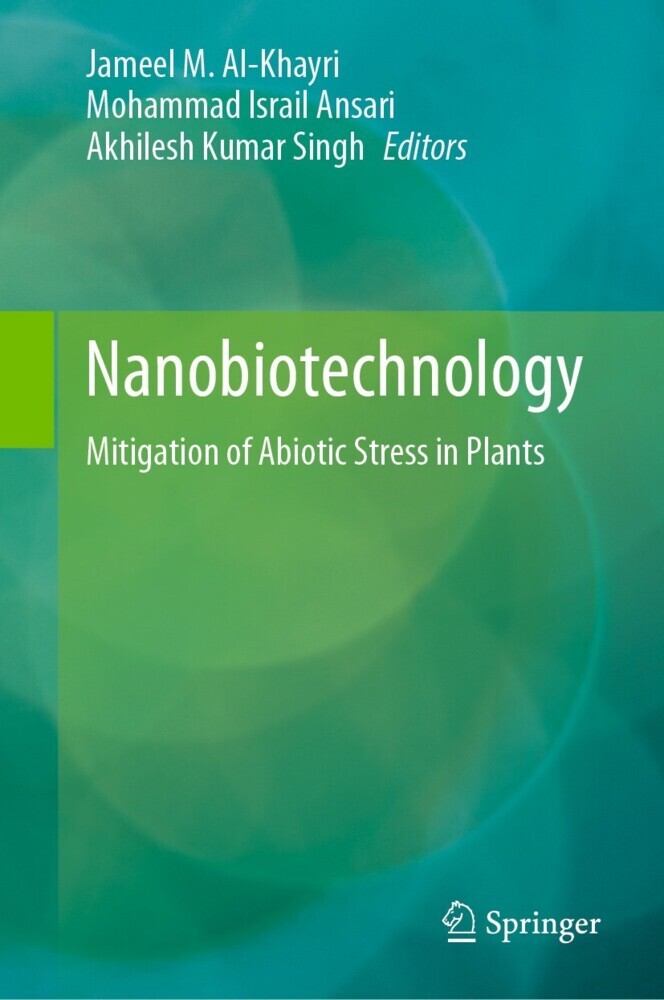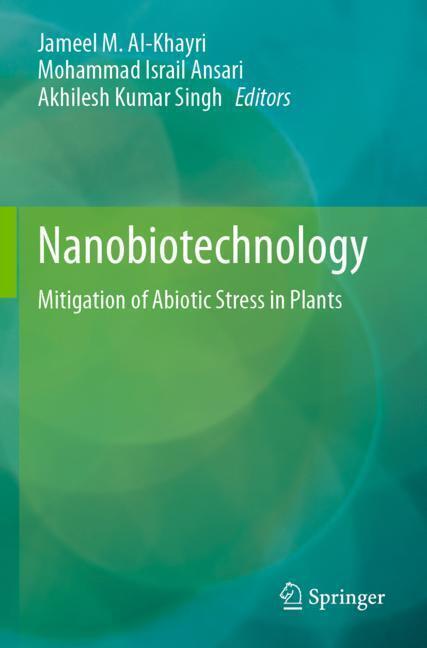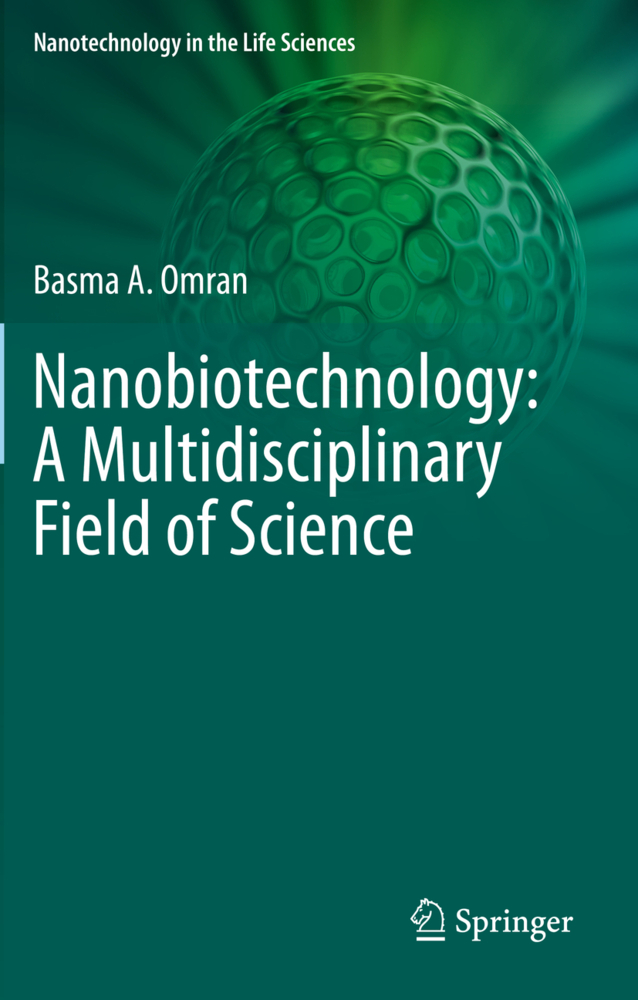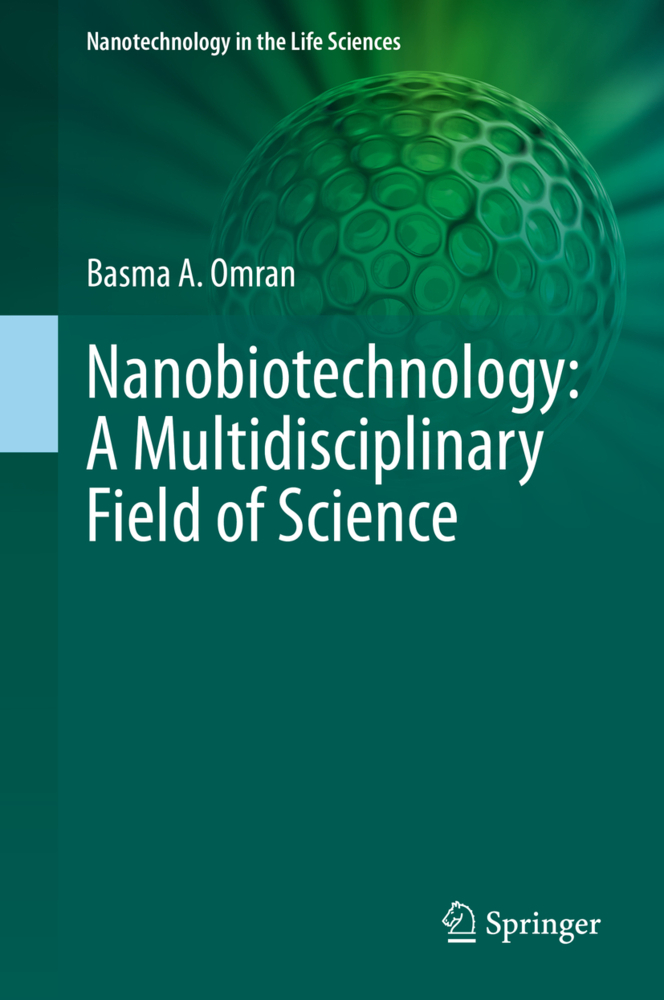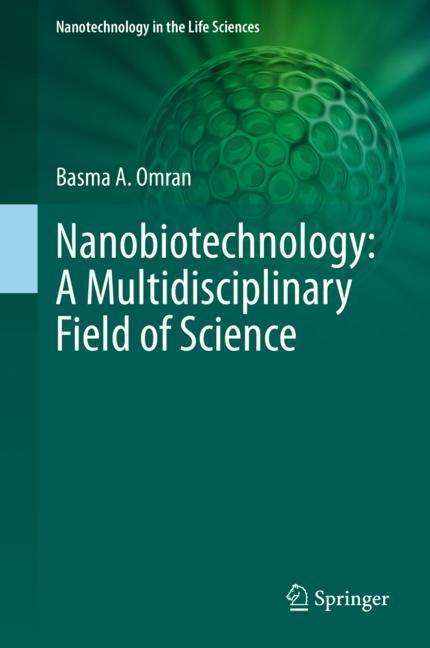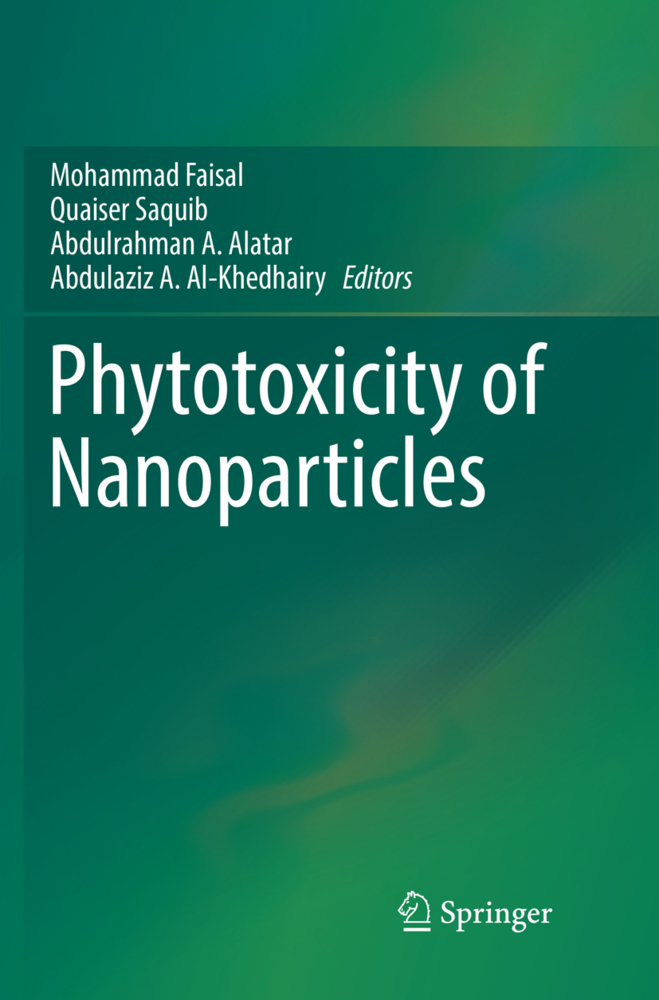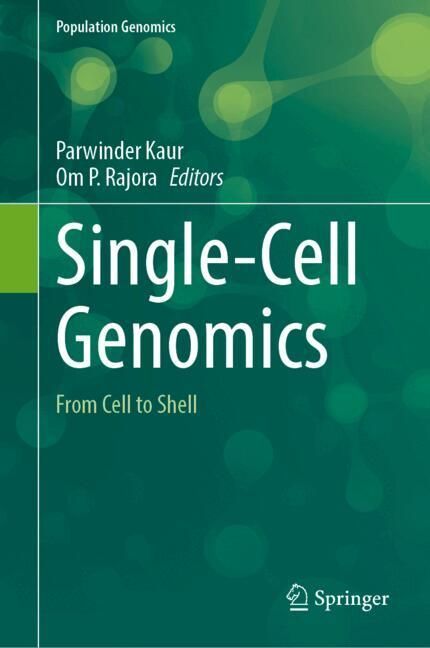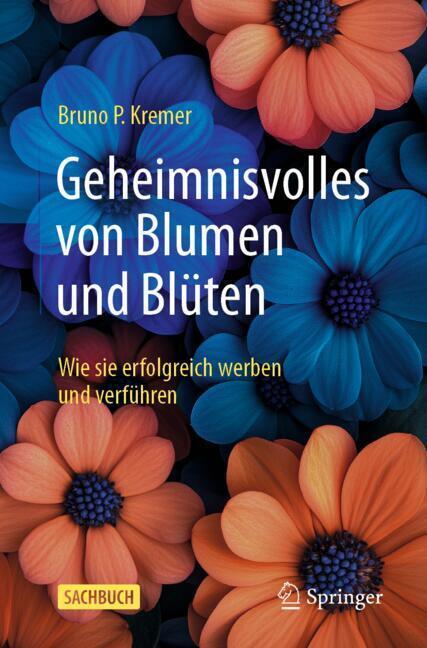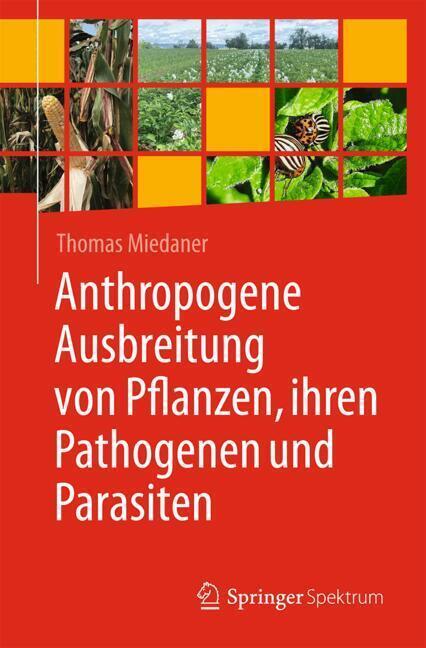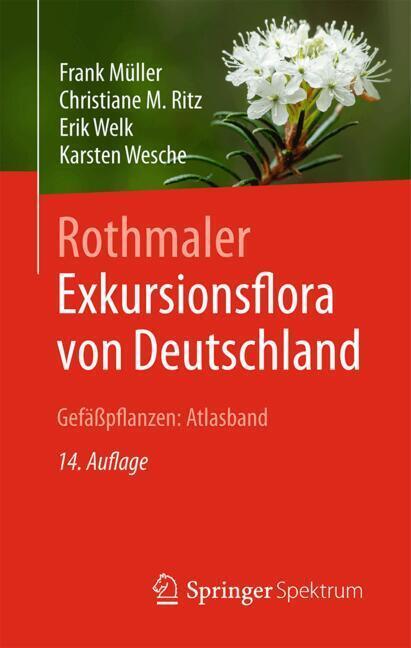Nanobiotechnology
This book provides up-to-date knowledge of the promising field of Nanobiotechnology with emphasis on the mitigation approaches to combat plant abiotic stress factors, including drought, salinity, waterlog, temperature extremes, mineral nutrients, and heavy metals. These factors adversely affect the growth as well as yield of crop plants worldwide, especially under the global climate change. Nanobiotechnology is viewed to revolutionize crop productivity in future.
The chapters discuss the status and prospects of this cutting-edge technology toward understanding tolerance mechanisms, including signaling molecules and enzymes regulation in addition to the applications of Nanobiotechnology to combat individual abiotic stress factors.
Jameel M. Al-Khayri is Professor of plant biotechnology at the Department of Agricultural Biotechnology, College of Agriculture and Food Sciences, King Faisal University, Saudi Arabia. He obtained B.S. in Biology in 1984 from the University of Toledo, M.S. in Agronomy in 1988, and Ph.D. in Plant Science in 1991 from the University of Arkansas, USA. He dedicated his research efforts to date palm biotechnology for the last three decades. He published over 60 research articles and reviews in international journals in addition to 30 book chapters. He is Editor of several special issues of international journal on date palm, biotechnology, and sustainable agriculture under abiotic and biotic stress. He is Editor of 15 Springer reference books including Date Palm Biotechnology, Date Palm Genetic Resources and Utilization (2 volumes), Date Palm Biotechnology Protocols (2 volumes), and Advances in Plant Breeding Strategies (9 volumes). He is appointed as Member of the editorial board and reviewers panel in several international journals. He is participated in the organizing and scientific committees of international scientific conferences and contributed over fifty research presentations. In addition to teaching, graduate students advising and conducting funded research projects, he held administrative posts as Assistant Director of Date Palm Research Center, Head of Department of Plant Biotechnology, and Vice Dean for Development and Quality Assurance. He is Active Member of the International Society for Horticultural Science and Society for In Vitro Biology and serving as the National Correspondent of the International Association of Plant Tissue Culture and Biotechnology. He serves as Member of Majlis Ash Shura (Saudi Arabia Legislative Council) Fifth Session. Currently, he is maintaining an active research program on date palm focusing on genetic transformation, secondary metabolites, and in vitro mutagenesis to enhance tolerance to abiotic and biotic stress.
Dr. Mohammad Israil Ansari is Professor at Department of Botany, University of Lucknow, India. Before joining University of Lucknow, he was Professor at Amity Institute of Biotechnology, Amity University, Lucknow Campus, Lucknow (2007-2016). He has been graduated and post-graduated from Department of Botany, Aligarh Muslim University, Aligarh, India, and doctoral degree from Dr. Ram Manohar Lohia Avadh University, Faizabad, India. He is Academia Sinica Fellow from Government of Taiwan. He has more than 26 years of research and 15 years of teaching experience with more than 70 research papers, several books, book chapter, review articles, Ph.D., post-graduate summer projects as well as funded research projects to his credit. He has been associated with Institute of Botany, Academia Sinica, Taiwan; Graduate Institute of Plant Biology, National Taiwan University, Taiwan; and Institute of Plant and Microbial Biology, Academia Sinica, Taiwan (2000-2007). He has made significant contributions in the field of Molecular Biology of Leaf Senescence, Dehydration Stress, Red Rot Disease of Sugarcane, and Nanotechnology. Presently, he is working on GABA-Transaminase gene that plays a very important role in leaf senescence process and role of nanotechnology in plant stress conditions. He is Editorial Board Member of several international journals as well as Member of several academic board/faculty board/board of studies/research and development bodies. He has delivered several invited lecture at national and international level.
Dr. Akhilesh Kumar Singh is currently an Assistant Professor in the Department of Biotechnology, Mahatma Gandhi Central University, Motihari, Bihar, India. He has more than 12 years of teaching and multidisciplinary research experience in microbial physiology and industrial biotechnology. His research focus is on polyhydroxyalkanoate bioplastic production, metallic nanobiotechnology, nitric oxide signaling, and biofuel production. Dr. Singh holds a Ph.D. in agricultural and food engineering and an M.Tech. in agricultural biotechnology from Indian Institute of Technology (IIT), Kharagpur, India, with a master's degree in biotechnology from IIT, Roorkee, India. He has qualified Graduate Aptitude Test in Engineering (GATE) in Life Science conducted by IIT Kanpur on behalf of the Ministry of Human Resources Development, Government of India. He was also awarded prestigious Council of Scientific and Industrial Research (CSIR)-University Grants Commission (UGC) Junior Research Fellowship (CSIR-UGC JRF) by Council of Scientific and Industrial Research, India. He has 16 research papers and 02 review articles in referred international and national journals, resectively; 08 review articles in referred international journals and 18 book chapters. Dr. Singh has supervised Ph.D., M.Tech., M.Sc. and B.Tech. students.
Al-Khayri, Jameel M.
Ansari, Mohammad Israil
Singh, Akhilesh Kumar
| ISBN | 9783030736064 |
|---|---|
| Artikelnummer | 9783030736064 |
| Medientyp | E-Book - PDF |
| Copyrightjahr | 2021 |
| Verlag | Springer-Verlag |
| Umfang | 590 Seiten |
| Sprache | Englisch |
| Kopierschutz | Digitales Wasserzeichen |

